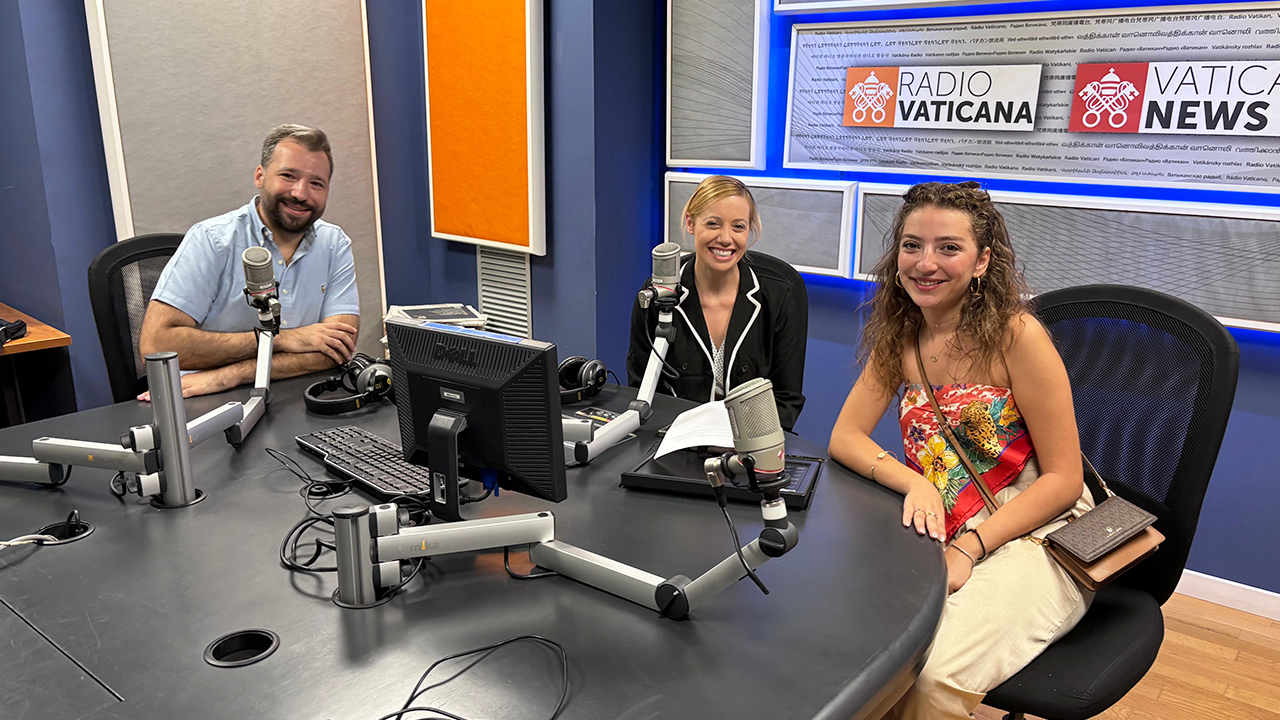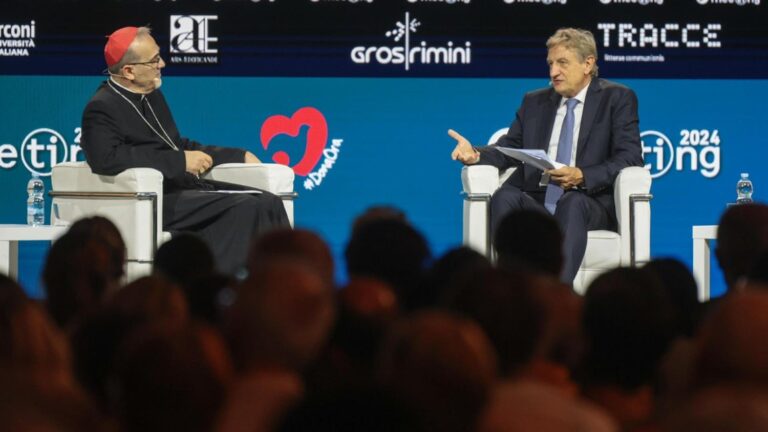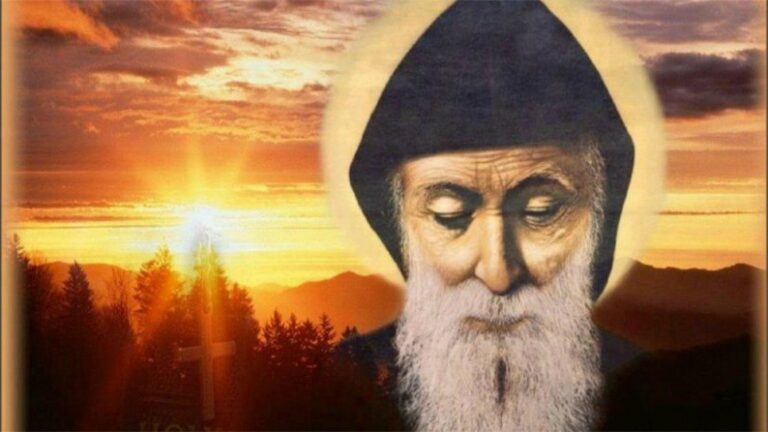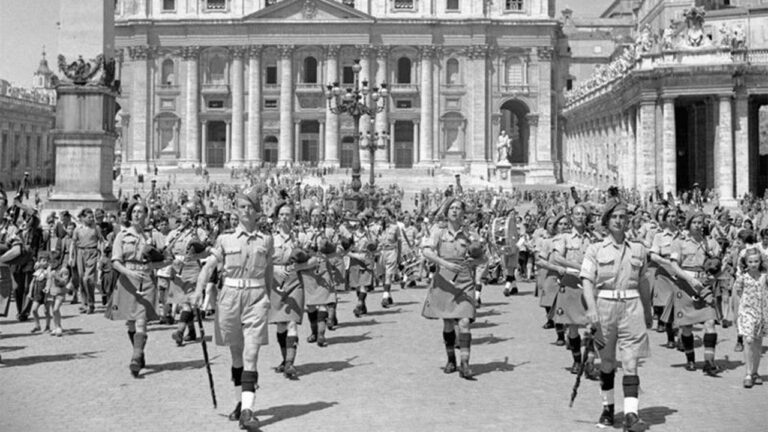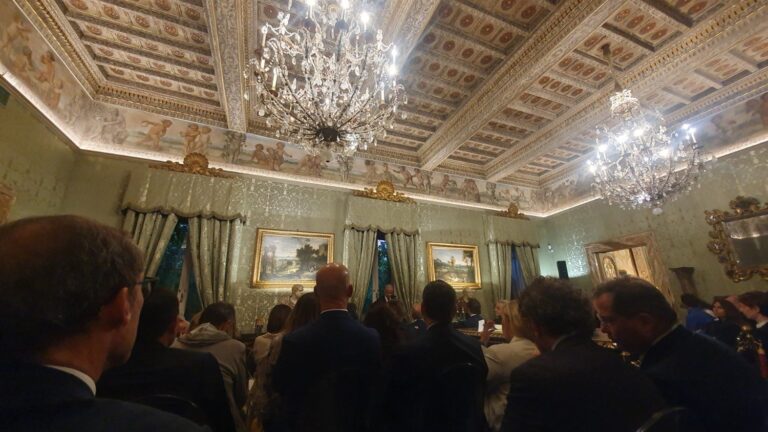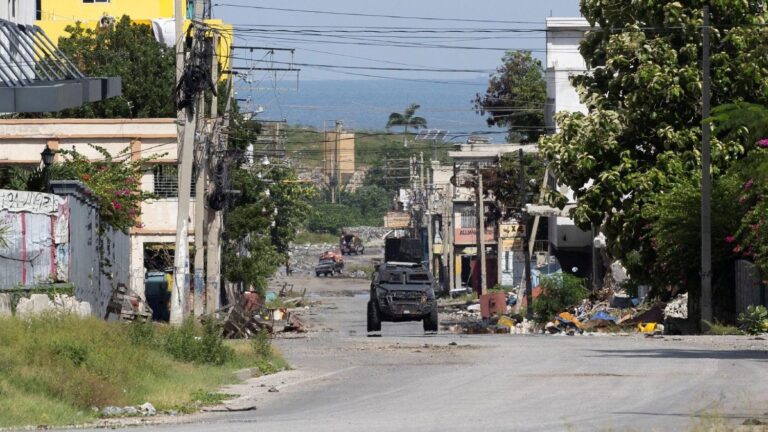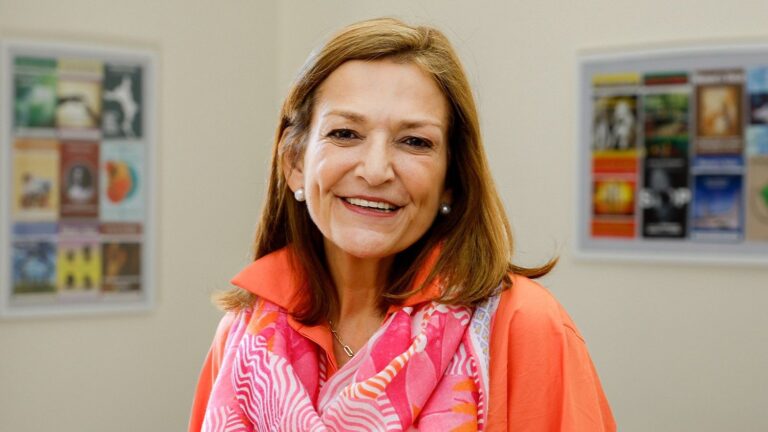Siblings describe comfort found in faith after losing father in Beirut Port explosion
Following Pope Francis’ audience with the families of those killed in the 2020 Beirut port explosion, Elie and Tatiana Hasrouty, who lost their father in the deadly blast, discuss the solace they have found in faith and how to work together for peace in Lebanon.
By Deborah Castellano Lubov
“We are not alone and we have a Church, the Catholic Church of Christ, which supports us, as well as the Lebanese people.”
In an interview with Vatican News after Pope Francis’ August 26 audience with the relatives of those killed in the 2020 Beirut port explosion, Elie Hasrouty and his sister, Tatiana, shared their experience of faith following the death of their father, Ghassan, who was head of operations at the Beirut port silos.
Port explosion of 2020
During the meeting, the Holy Father met with a 30-person delegation of families of victims of the devastating explosion, demonstrating his closeness, calling for peace in the Middle East and expressing his solidarity in their quest for truth and justice.
The detonation of a massive quantity of highly explosive materials that had been improperly stored in a warehouse in the city’s port caused the explosion that killed more than 200 people, injured thousands and caused extensive damage to buildings and infrastructure in Beirut.
The tragedy has exposed issues of corruption, mismanagement and neglect, and investigations into the incident have revealed failings at multiple levels of government and port authorities, all contributing to the ongoing political and social distress in the Middle Eastern nation.
No closure
“Yet, after four years, we still haven’t turned the page,” laments Elie, an engineer, adding: “we cannot mourn,” because too many questions remain open and a lack of justice remains.
“We don’t have institutions that function normally in Beirut,” he said, asserting that “the institutions have failed to do their job to protect human dignity and serve the people.”
However, Elie describes his audience with Pope Francis as a source of consolation, which, he noted, allows him to move beyond quests for justice and “learn lessons from tragedies” for the betterment of the country and future generations.
Lebanese “responsible for their future”
“The Lebanese must be responsible for the future, and not always play the role of victims,” he said. While paying tribute to the countless victims of the crisis and those who were heartbroken by the port disaster, he urged others to join in a certain “responsibility” and “shared responsibility,” which the Church lives out, he said, by working concretely to support communities and the good of all.
“It was a great privilege and an extremely important message to Lebanon and the Lebanese people,” he said, “that we are not alone and that we have a Church, the Catholic Church of Christ, that supports us and the Lebanese people.”
Hope through the support of the Church
“What really gives me hope is the Church itself, which has gone through almost every trial for two thousand years,” he said. That is why, thanks to his faith, he is able to keep hope, because Christ can heal and endure all things.
The Lebanese also responded that the Pope’s closeness to Lebanon, the land of the Cedars, his years of appeals and his words to the relatives of the victims during Monday morning’s audience with the families were a significant source of comfort.
Tatiana, a 23-year-old lawyer who is currently finishing her studies in Milan, also acknowledged that in the midst of difficulties, one must move forward.
“It’s important to know,” she said, “that it doesn’t stop there and that we are people of faith.”
The proximity of the Pope and the Church to Lebanon
“Four years later, I“It is important for the Lebanese people and the world to see,” she stressed, “that the Pope and the Church really know what is happening in the world and really care about it.”
“With the war in Ukraine and the war in Gaza,” she observed, “people are sometimes interested in more influential issues and wars, rather than the ones that happened before.”
This is why, she said, “the fact that Pope Francis listens to us and offers us his condolences is something very important on a personal level and on a national level, because it demonstrates once again how much he really cares about Lebanon and really knows what is happening there.”
Amid the volatile situation, especially in the context of the war in the Holy Land, she suggested, there is a way for the country to work towards reconstruction.
“Lebanon, a peace project”
The Pope recalled that “Lebanon is becoming like a battlefield in the war, and as Pope John Paul II said, it is a project of peace.” This is very important, she stressed, welcoming the fact that in Lebanon there is often a great capacity for coexistence between religions.
“Yesterday,” she said, “we were not all Christians, but there were also Druze and Muslims,” and yet, she said, we “united” “without the Church selectively sorting out those present according to their religion or political affiliation.”
On the contrary, “the Church and the Christian Society,” she stressed, “are there to support everyone, whatever their origin, and it is important to be aware of this.”
